Classic Studies in Methodist Polity and Organization (6 vols.)
Digital Logos Edition
Overview
Enter into the discussion of early Methodist esslesiology through the Classic Studies in Methodist Polity and Organization collection—six volumes of penetrating insight into the origin and early controversies surrounding Methodist ecclesiology. Grounded in the work of the early church fathers, the English reformers, and the work of John Wesley, Thomas Coke, and Francis Asbury, these volumes and essays provide a deeply historical study of ecclesiology and episcopality. Especially for anyone interested in applying these historical dimensions to modern conversations, Classic Studies in Methodist Polity and Organization is a glimpse into the past that will help guide the church of the future.

- Studies the early ecclesiology and episcopality of the Methodist church
- Provides a glimpse into the early ideas of the structure of Methodism
- Explores the theological minds of several early Methodist bishops
- Title: Classic Studies in Methodist Polity and Organization
- Volumes: 6
- Pages: 1,200
- Christian Group: Methodist
- Topic: Ecclesiology
- The Constitution of the Methodist Episcopal Church, and the Constitutions and Charters of the Several Organizations Authorized by the General Conference
- The Organic Union of American Methodism by Stephen M. Merrill
- An Original Church of Christ: or, A Scriptural Vindication of the Orders and Powers of the Ministry of the Methodist Episcopal Church by Nathan Bangs
- Ecclesiastical Polity: Its Forms and Philosophy by A.N. Fillmore
- The History and Mystery of Methodist Episcopacy by Alexander M’Caine
- A Defence of "Our Fathers," and of the Original Organization of the Methodist Episcopal Church by John Emory
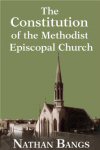
This fascinating historical volume provides the sections of the Constitution of the Methodist Episcopal Church of 1900, along with the minutes, actions, and revisions of 1784, 1787, 1808, 1868–1872, and 1900. In this tome, you’ll also find the history of the institution of the Methodist Book Concern, the Board of Education, the Sunday-school Union, and the various missionary societies of the Methodist Episcopal Church, along with the charter appropriate to each.
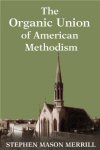
What does it mean to be “Methodist”? Responding to the issue of numerous autonomous divisions and independent Methodist denominations, Stephen Merrill unfolds what he calls the “organic” union of Methodism, discussing under what conditions is it proper to break away from a church and start a new organization, and then when is it proper to seek reunification. Seeing the Reconstruction Era as an era of reunification as well, Merrill writes in hopes of rebuilding bridges between numerous Methodist episcopates, whose reasons for dividing have long been remedied.
Stephen Mason Merrill (1825–1905) was an American bishop of the Methodist Episcopal Church and an editor of the Western Christian Advocate. His works include The Second Coming of Christ Considered in Its Relation to the Millennium, the Resurrection, and the Judgment, A Digest of Methodist Law, Doctrinal Aspects of Christian Experience, and The New Testament Idea of Hell.
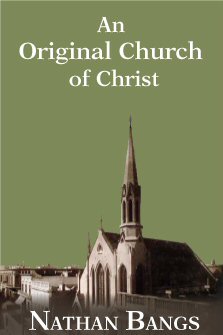
Nathan Bangs explores the validity of the ordination of bishops in the Methodist Episcopal Church. In Bang’s view, the ordinations of Francis Asbury and Thomas Coke are integral to the authority and episcopality of the Methodist Church. Using the early church fathers, including Polycarp, Origen, and Jerome, the Reformation church (such as Cranmer and Hooker), and the writings of St. Peter and St. Paul, Bangs develops a theology of episcopacy that reveals a continuous episcopacy from the early church to modern Methodism. He cites numerous letters of John Wesley and Thomas Coke to establish their viewpoints on the matter as well.
Nathan Bangs (1778–1862) was an American Methodist theologian from Stratford, Connecticut. He converted to Methodism in 1800 and worked for eight years as an itinerant preacher in the wilderness of upper Canada. Bangs was the founder and secretary of the Methodist missionary society in 1836. Six years later, he was appointed president of Wesleyan University in Middletown, Connecticut, but returned to pastoral work the next year.
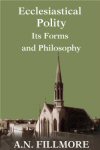
This mid-nineteenth-century textbook of ecclesiastical polity covers a broad span of theological and ecclesiastical systems while grounding itself in history and government. Especially studying the historical and original Methodist system of ecclesiastical polity, this work by A.N. Fillmore provides a treatment that saw extensive publication and use throughout the nineteenth century.
Contents:
- Chapter 1: Of Civil Polity and Order
- Chapter 2: Of Civil Government—Its Forms
- Chapter 3: Of Civil Government—Its Philosophy
- Chapter 4: Of Ecclesiastical Polity—Its Necessity and Nature
- Chapter 5: Of Ecclesiastical Polity—Its Forms
- Chapter 6: Of Episcopacy as found in the Church of Rome—Its Origin
- Chapter 7: Of Episcopacy as found in the Church of Rome—Its Strength
- Chapter 8: Of Episcopacy as found in the Church of Rome—Its Dangerous Tendencies to the Liberties of the World
- Chapter 9: Of Episcopacy as found in the Church of Rome—The Antidote to those Dangerous Tendencies
- Chapter 10: Of Episcopacy as found in the Church fo England
- Chapter 11: Of Episcopacy as found in the Protestant Episcopal Church in the United States
- Chapter 12: Of the Presbyterial form of Church Government
- Chapter 13: Of the Congregational form of Church Government
- Chapter 14: The Church as a Theocracy
- Chapter 15: Consequences resulting from the Fact that the Church is a Theocracy
- Chapter 16: Of the Government of the Methodist Episcopal Church—Its Origin
- Chapter 17: Of the Government of the Methodist Episcopal Church—Its Potency
- Chapter 18: Of the Government of the Methodist Episcopal Church—Its Purity
- Chapter 19: Of the Episcopacy of Methodism
- Chapter 20: The Power of Bishops in the Methodist Episcopal Church
- Chapter 21: The Necessity of Bishops in the Methodist Episcopal Church
- Chapter 22: The Contrast between Methodist Bishops and those of other Churches
- Chapter 23: Of the Presbyterial Aristocracy of Methodism
- Chapter 24: Of the necessity of Presiding Elders in the Methodist Episcopal Church
- Chapter 25: Of the Congregational Democracy of Methodism
- Chapter 26: Of Deacons in the Church of God
- Chapter 27: Of Lay Officers in the Methodist Episcopal Church
- Chapter 28: Of the Philosophy of Ecclesiastical Government
- Chapter 29: Of Church Constitutions
- Chapter 30: Of Disorganizers in Churches
- Chapter 31: Duty to Sustain Civil and Ecclesiastical Order
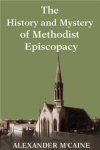
A Methodist bishop of nearly 30 years, Alexander M’Caine calls into question the origin and validity of the Methodist episcopacy. In this essay, he investigates the power of representation and who has the authority for legislation in the Methodist Episcopal Church—and whether the Methodist church is formed in such a way as to preserve it from disunion over time.
Alexander M’Caine was an early nineteenth-century Methodist bishop who travelled with Francis Asbury. In his later years, he departed from the Methodist Episcopal Church to join the Methodist Protestant Church, and actively denounced the episcopal organization of Methodism.
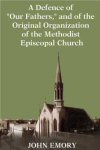
In response to Alexander M’Caine’s essay against the episcopal nature of Methodism, John Emory defends the episcopal vision of John Wesley, Thomas Coke, and Francis Asbury. He explores the teachings of the first Methodists in America, discusses the ordination of Thomas Coke, explores the early prayer books of the Methodist church, and concludes that Methodism is intended, and by necessity must be, an episcopal church.
John Emory (1789–1835) was an American Methodist Bishop of the Methodist Episcopal Church. Born in Maryland to a Methodist family, Emory was educated at Washington College in Chestertown, Maryland, studied law under Judge R.T. Earle, and was admitted to the bar in 1808. But shortly after, left the practice of law to become a travelling preacher. He was ordained a Methodist bishop in 1832, only three years before his death in a carriage accident. Emory University was founded a year later and carries on his namesake.